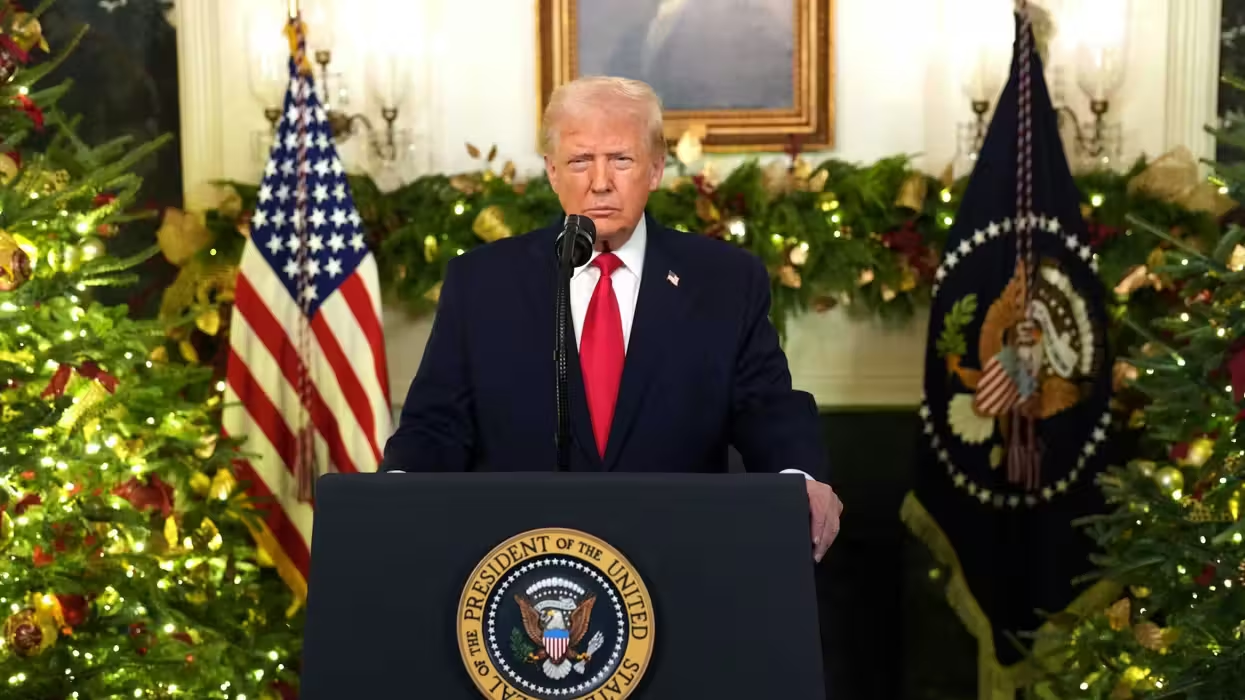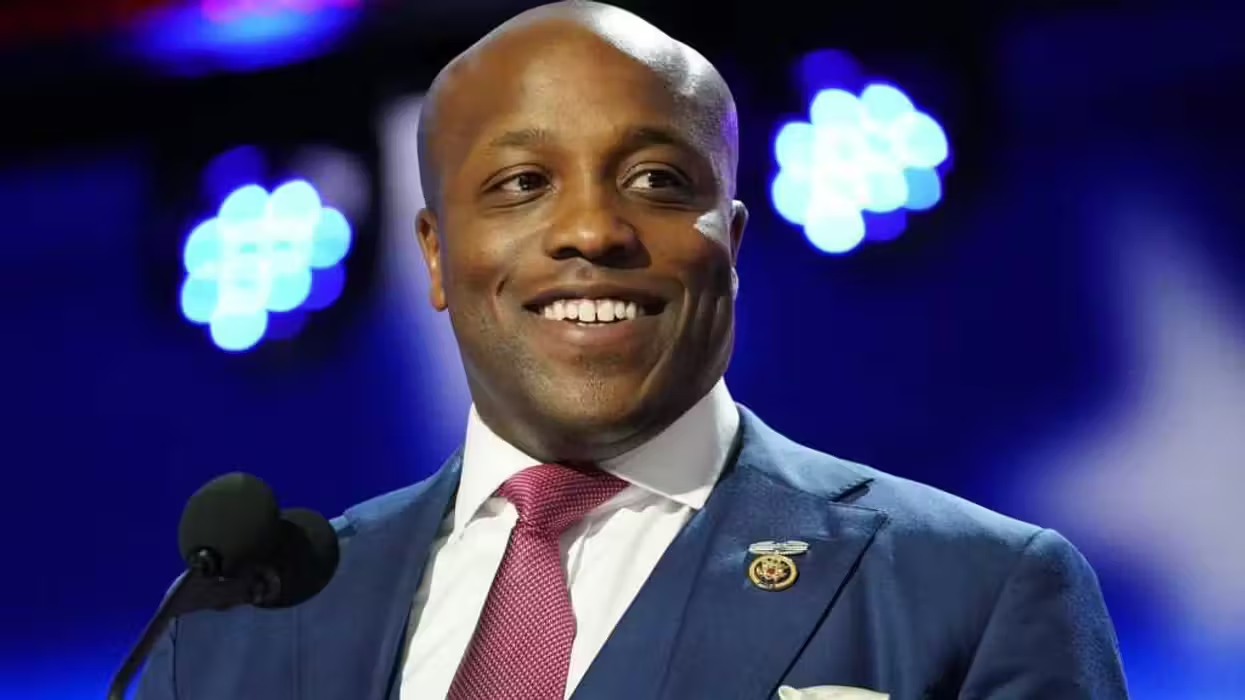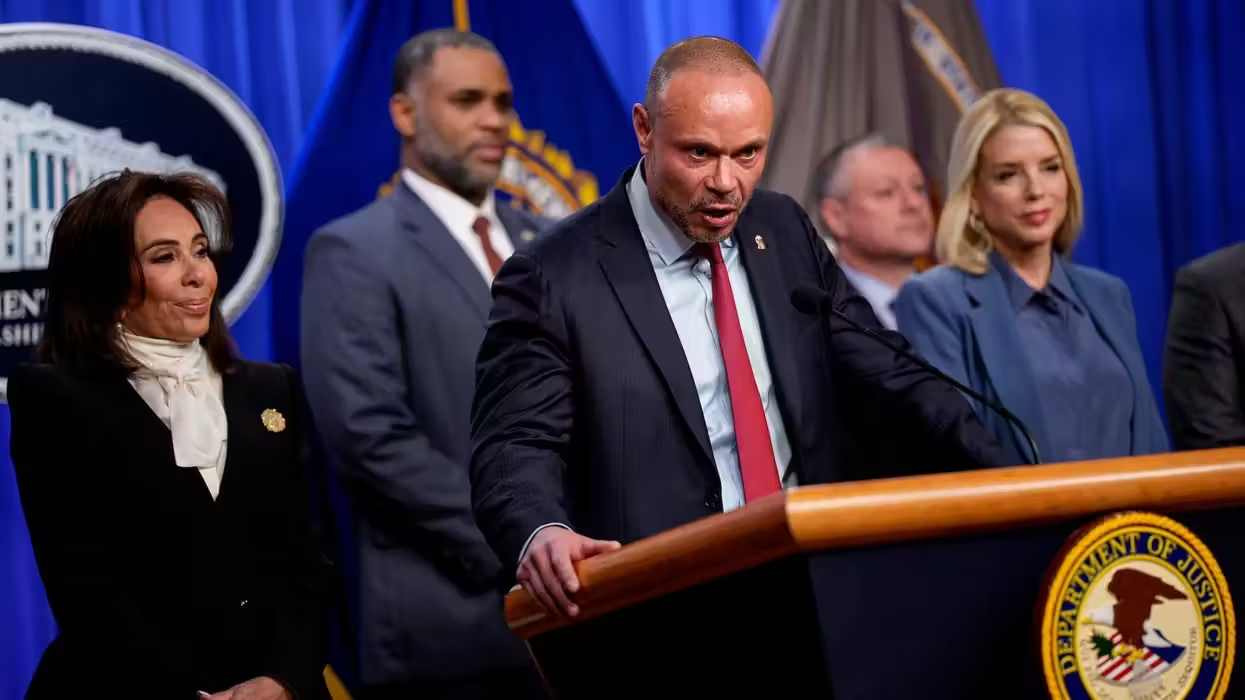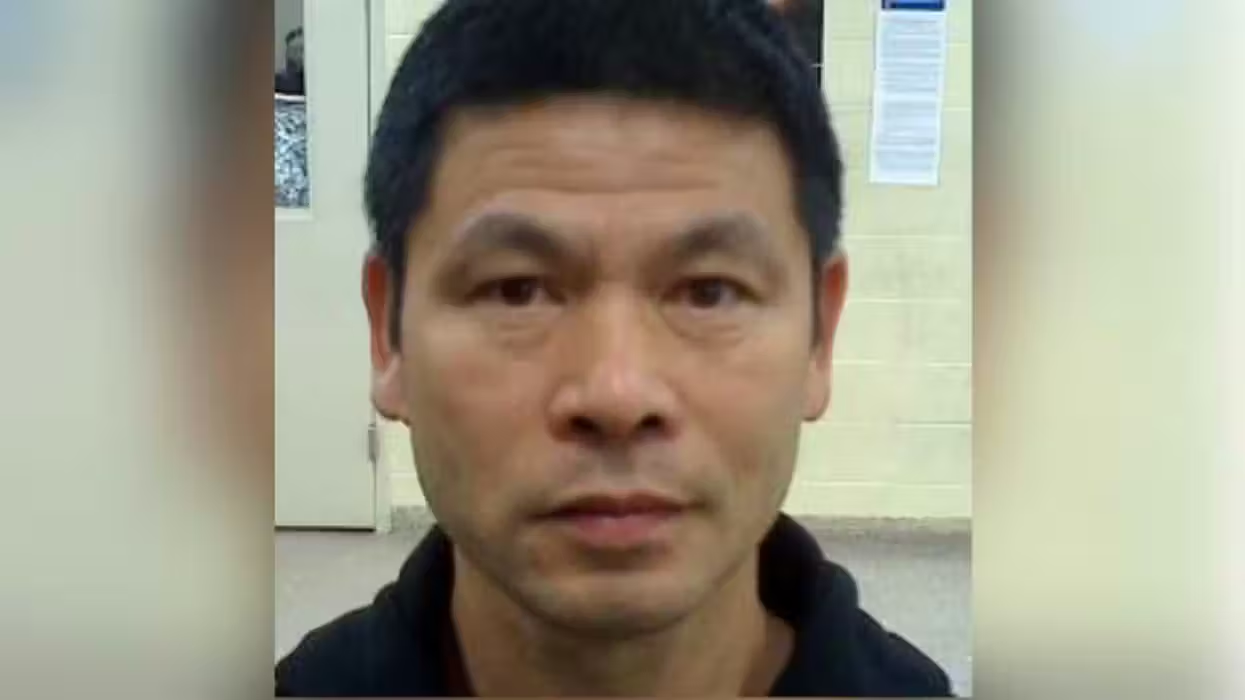
© 2025 Blaze Media LLC. All rights reserved.
Under our prevailing corrupt judicial practices, one district judge or one circuit panel can redefine our Constitution, determine our politics, and control our borders and security policy and over the other two branches of government and all fifty states. But by the same token, just one Supreme Court justice can unilaterally shut it down. It’s called circuit assignments, and it’s a Supreme Court procedure we should focus on more carefully and ask about the philosophy of the nominee on its use.
The ideal remedy is for Congress to get back on the playing field
Ideally, the lower court tyranny over nakedly political issues would easily be dispensed with by Congress. The legislative branch of government created the lower courts and has full power to change their jurisdiction, abolish the circuits, divide the circuits, and prescribe rules and procedures governing everything they do. Truth be told, the same applies to congressional power over the Supreme Court. The only constitutional mandate beyond the reach of Congress’ regulatory power is that some sort of body called the Supreme Court must be allowed to convene at some point with someone called “the Chief Justice of the United States,” with original and irrevocable jurisdiction over disputes between states and a few other rare and obscure cases spelled out in Article III Sec. 2 of the Constitution.
Every other aspect of the judiciary is fair game for congressional regulation the same way Congress regulates the structure, procedures, funding, and policies of every nook and cranny of the more robust executive branch. While we have three separate and co-equal branches of government in certain respects, Madison was clear that the “legislature would necessarily predominate,” and most certainly, the Supreme Court, much less the congressionally created inferior courts, would not dictate unquestionably to the other branches on broad policies.
Nothing about the structure or jurisdiction of the courts is sacredly ensconced in the Constitution. The makeup of the courts has all been determined by previous congressional legislation that can easily be updated at any time with new laws. Congress can completely dictate the rules and procedures of the courts and has done so in the past, but has chosen in this century to allow them – through the Rules Enabling Act – to set their own standards. But Congress giveth and Congress taketh away. Even short of jurisdiction stripping, there are many ways that Congress can gum up the works and influence the courts, which cannot reciprocate. Let’s not forget that with the Judiciary Act of 1802, Jefferson’s allies in Congress abolished an entire two terms of the Supreme Court. In an irony lost on many judicial supremacists who misinterpret Marbury, John Marshall in the very same year of Marbury fully abided by the decision of Congress to abolish two of his terms.
The only thing Congress cannot do is to actually exercise the judicial power and adjudicate a real individual case. As the Supreme Court recently said in Patchake v. Zinke, the only thing Congress can’t do is directly say, “In Smith v. Jones, Smith wins.” As Thomas said, writing for the majority, “Congress generally does not infringe the judicial power when it strips jurisdiction because, with limited exceptions, a congressional grant of jurisdiction is a prerequisite to the exercise of judicial power.” That is because “the legislative power is the power to make law, and Congress can make laws that apply retroactively to pending lawsuits, even when it effectively ensures that one side wins.” Thus “when Congress strips federal courts of jurisdiction, it exercises a valid legislative power no less than when it lays taxes, coins money, declares war, or invokes any other power that the Constitution grants it.”
As such, Congress can easily remedy the problem of tyranny from the lower courts by explicitly denying them the power to issue universal injunctions, mandating automatic appeals to the Supreme Court or automatic stays on injunctions pending appeal in certain classes of cases, or wholesale stripping them of power to adjudicate certain cases.
If we are going to crown SCOTUS king, at least make the court king over inferior courts
Unfortunately, we know that Congress has no intention of acting. Is there anything the Supreme Court could do on its own, especially with better justices, to rein in the lower courts?
This is where circuit assignments come into play. Pursuant to long-standing statute, individual supreme court justices have unilateral jurisdiction over the various circuits and can issue stays and injunctions and grant other forms of relief without necessarily asking other colleagues to weigh in. This practice is most commonly used when criminal defense attorneys in capital cases file emergency motions to stay executions.
Here is the current arrangement of circuit assignments, which under current law, is delegated to the chief justice to determine. Anthony Kennedy was the justice overseeing the Ninth Circuit. Also, Chief Justice Roberts oversaw the Fourth and D.C. Circuits, arguably the two most problematic circuits after the Ninth. It’s no wonder we rarely see relief from justices putting stays on frivolous of damaging injunctions of the lower courts. Clarence Thomas oversees the Eleventh Circuit, but not so much mischief emanates from that panel.
What happens to the circuit assignments, particularly the Ninth Circuit, when Kennedy retires? My understanding is that Roberts would offer that position based on order of seniority. Guess who that would be? Clarence Thomas, the same man who is clearly irate with the Ninth Circuit’s shenanigans and the frivolous universal injunctions. Or, if all the justices want to stay put, the new member, Brett Kavanaugh, would oversee the Ninth Circuit. This is why it’s so important for conservatives to ask Kavanagh about his philosophy concerning the lower courts and how aggressively he will intervene using the instant and unilateral relief of circuit assignment stays to uphold the Constitution.
In recent years, the Supreme Court considered only 80-100 cases per term out of the 7,000-8,000 appeals that are filed by appellants from circuit court opinions. This past term, the court took up just 60 cases, the lowest number since the Civil War! Yet at the same time, the dockets of the lower courts are swelling every year. Unless something changes, the lower courts will de facto be the final say on many issues, and given where the powerful left-wing litigators shop the cases, they will not be decided well. Individual stays from circuit assignments provide the more immediate remedy for when there aren’t four justices willing to take up a case.
This is where we will discern the true originalists from the frauds. Roberts has no interest in slapping down the lower courts, so he often will not take up the case. But if we get a good justice in charge of the Ninth Circuit and make it cool in the political and legal culture to more aggressively use this method of relief, it will obviate the need to take up these cases.
Generally speaking, the better justices oversee the better circuits. Alito oversees the Fifth Circuit, which was in the domain of Scalia before he died. Gorsuch oversees the solid Eighth Circuit. We need the good guys to police the bad circuits instead, and with Kennedy’s retirement, we might just have that opportunity.
For much of our recent history, individuals and corporations have suffered from frivolous lawsuits. Now, the entire country is suffering from frivolous constitutional and political lawsuits. Something needs to be done in the long term to rein them in, but Kennedy’s retirement might provide us with some automatic relief, at least in the Ninth Circuit. While this remedy is rarely used in big cases without referring the motion to stay to the full court, if the other justices are reluctant to tackle these cases, then the individual justice should force their hands by aggressively granting stays unilaterally. Activist lower courts cannot be combatted with a passive Supreme Court – on top of a comatose Congress.
#mc_embed_signup{background:#fff; clear:left; font:14px}
/* Add your own MailChimp form style overrides in your site stylesheet or in this style block.
We recommend moving this block and the preceding CSS link to the HEAD of your HTML file. */
Want to leave a tip?
We answer to you. Help keep our content free of advertisers and big tech censorship by leaving a tip today.
Want to join the conversation?
Already a subscriber?
Blaze Podcast Host
Daniel Horowitz is the host of “Conservative Review with Daniel Horowitz” and a senior editor for Blaze News.
RMConservative
Daniel Horowitz
Blaze Podcast Host
Daniel Horowitz is the host of “Conservative Review with Daniel Horowitz” and a senior editor for Blaze News.
@RMConservative →more stories
Sign up for the Blaze newsletter
By signing up, you agree to our Privacy Policy and Terms of Use, and agree to receive content that may sometimes include advertisements. You may opt out at any time.
Related Content
© 2025 Blaze Media LLC. All rights reserved.
Get the stories that matter most delivered directly to your inbox.
By signing up, you agree to our Privacy Policy and Terms of Use, and agree to receive content that may sometimes include advertisements. You may opt out at any time.






